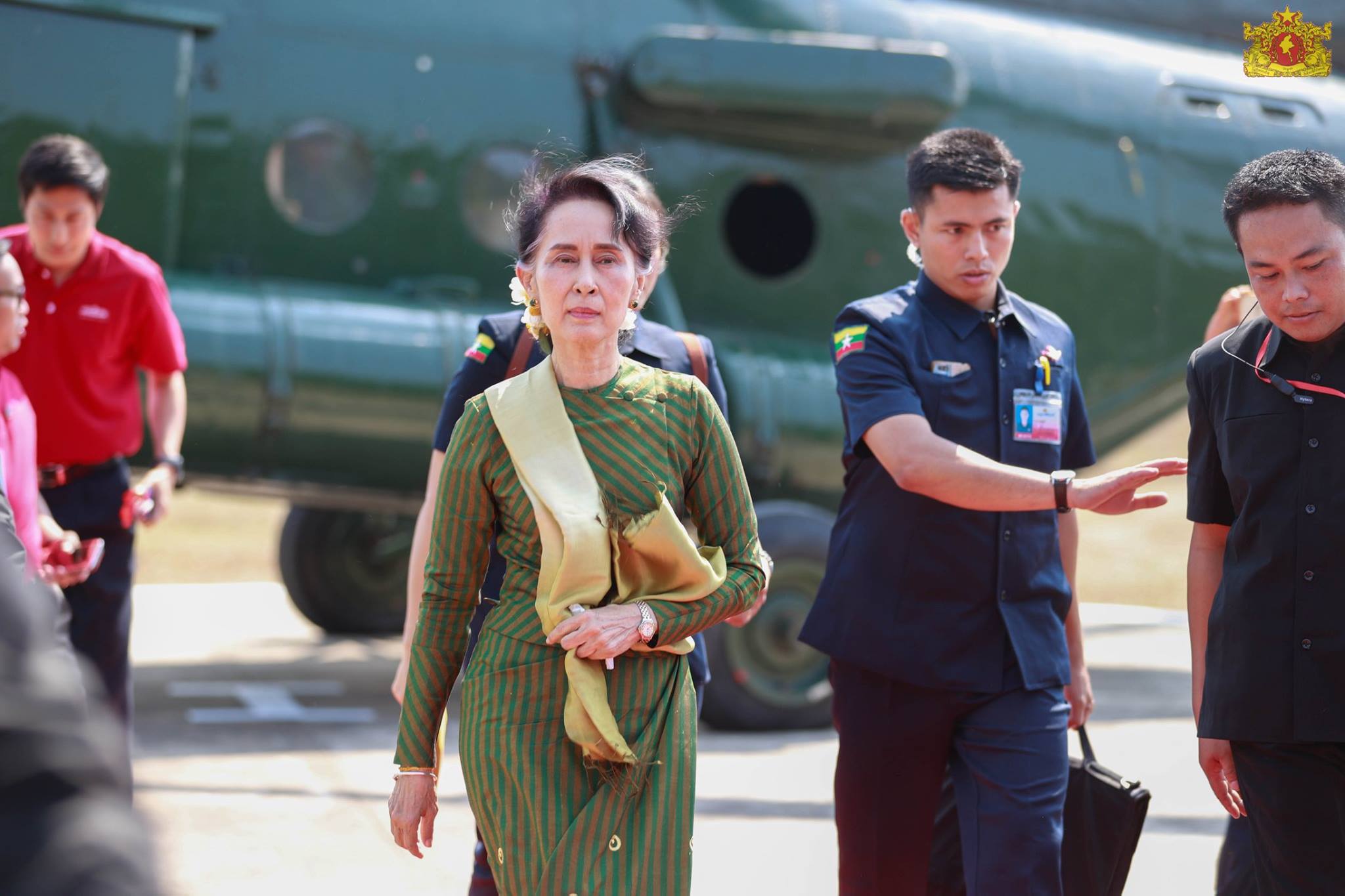The office of State Counsellor Aung San Suu Kyi issued a frantic denouncement today against the effort by the International Criminal Court (ICC) prosecutor to claim jurisdiction over Myanmar’s mass expulsion of Rohingya during military crackdown starting in Aug. 2017.
Although Myanmar is not party to the Rome Statute, and thus is not a member of the ICC, prosecutor Fatou Bensouda filed a request for jurisdiction earlier this week on the grounds that Myanmar’s alleged crimes affected Bangladesh, which is a member of the court.
“The proposed claim for extension of jurisdiction may very well reap serious consequences and exceed the well enshrined principle that the ICC is a body which operates on behalf of, and with the consent of State Parties which have signed and ratified the Rome Statute,” reads the state counsellor’s statement.
The statement also cites a medieval legal maxim that states that a law cannot regulate a matter that it does not mention, as well as the 1969 UN Vienna Convention on the Law of Treaties, which “states that no treaty can be imposed on a country that has not ratified it.”
“The extension of jurisdiction to non-parties may have a reverberating effect to all non-parties in the world and challenges long established legal principles such as legal certainty. What the Prosecutor is attempting to do is to override the principle of national sovereignty and non-interference in the internal affairs of other states, in contrary to the principle enshrined in the UN Charter and recalled in the ICC Charter’s Preamble,” the statement continues.
Myanmar maintains that it has not deported anyone from northern Rakhine State and that Rohingya civilians have burned their own homes during the military’s operations in their villages – claim that has been debunked.
The government says it has been working with Bangladesh and that “all requirements for repatriation are in place.” However, this claim has been countered by Ursula Mueller, assistant secretary general for the UN’s Office for the Coordination of Humanitarian Affairs, who visited northern Rakhine State this month and said Myanmar has yet to address “critical issues of freedom of movement, social cohesion, livelihoods, and access to services.”
The conclusion of the statement refers to the Rohingya refugees as “IDPs,” as did state media outlets that reported on the visit this week by social welfare, relief, and resettlement minister Dr. Win Myat Aye to the Kutupalong refugee camp. The phrasing, which implies that the Rohingya are native to Bangladesh, may be an attempt to rebut the ICC prosecutor’s claim that Myanmar committed a transnational version of the crime of “deportation or forcible transfer of population,” which is outlawed under Article 7(1)(d) of the Rome Statute.





Reader Interactions